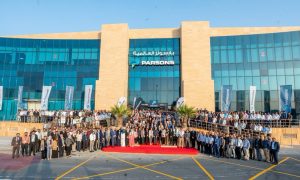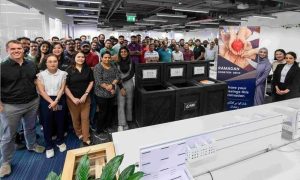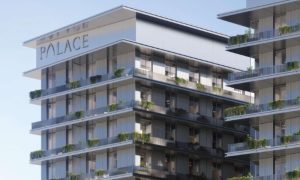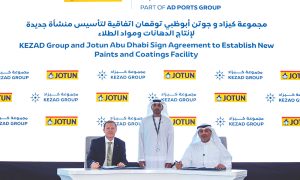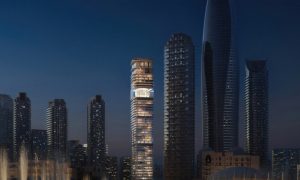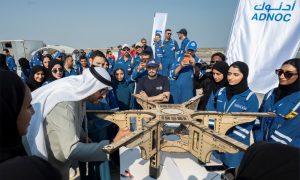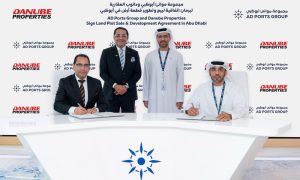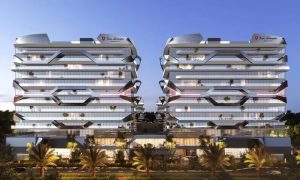Project profile: Doha Festival City, Qatar
Project control software has helped the construction team collaborate
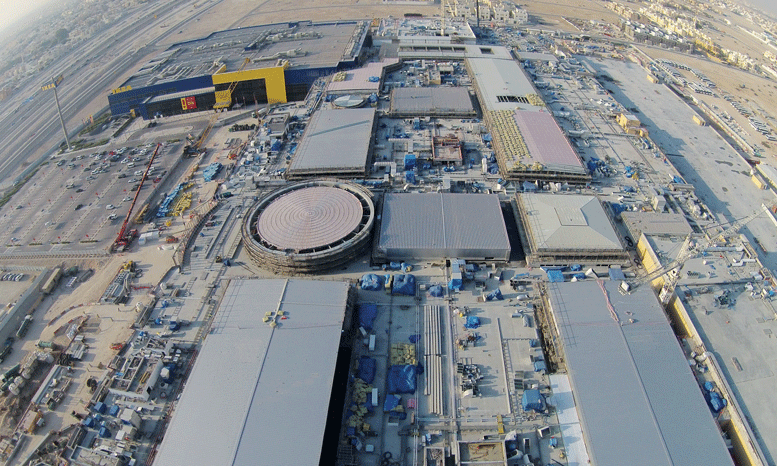
Construction work on Doha Festival City continues apace, with its massive mall scheduled to open its doors to the public on September 29, 2016. With more than 500 stores, a food court, cinema and entertainment offerings set to debut at the opening, the pressure is on for the construction team behind the project.
In February 2016, Kareem Shamma, CEO of Bawabat Al Shamal Real Estate Company (BASREC) WLL, announced that there was a “day-to-day” plan to ensure the facility is finished and ready to go by its due date. Big Project ME decided to catch up with various members of the team behind the project to find out how they managed to foster a culture of collaboration and cooperation on this complex development.
Michael Beggs, development director at Al Futtaim Group Real Estate (AFGRE), which has overall responsibility for the development and operation of Doha Festival City, says, “We’re working closely with the appointed project manager, Mace International, to ensure that all key milestones and specifications are delivered, in order to meet the scheduled completion date.”
That close cooperation and partnership between the various stakeholders has been a key factor in the success of the project. This drive has come from the very top, with contractor, consultant, project manager, development manager and client all determined to encourage collaborative thinking throughout the entire project team. This was exemplified by the main contractor on the project, a joint venture between ALEC Qatar and Gulf Contracting Company.
During a prior interview with Big Project ME, Kez Taylor, CEO of ALEC, touched upon the synergy in the team. “Everyone is pulling in the right direction. In terms of the structure, the guys are doing a fantastic job, they’re doing really well. The project has got real momentum, which is a good thing to see. When you see projects that have momentum, things tend to happen almost effortlessly.”
Spread out over a total site area of 433,000sqm, with a gross leasable area of over 240,000sqm, Doha Festival City has been described as a “category killer” by Kareem Shamma. Terming it the “first international mall in Doha” due to the wealth of local and overseas expertise and knowledge applied to the project, Shamma says that 90% of the mall has now been leased. Recently, retailers were invited on a tour of the site to give them an update and demonstrate first-hand the readiness in order to meet the planned opening date.
“They came very sceptical. No one believes here that something will open on time. But they left very convinced,” he told Doha News, adding that progress on the centre was going well, with shop units ready for tenants to fit out, while infrastructure like escalators had also been installed.
All stakeholders on the project seem to be happy with how work is progressing on this prestigious project for Doha. The biggest challenges facing a project like this are often found in maintaining an effective working balance between all the stakeholders involved. This means that there needs to be clear communication pathways between all collaborators, to ensure that construction is carried out smoothly and that teams don’t get in each other’s way.
To that end CONJECT, a German provider of software and services for construction project management, was appointed to the project to help implement its project controls system. The software provides the Doha Festival City construction team with a secure cloud-based framework, which enables all the team members to share key information while being able to communicate effectively throughout the project life cycle.
“Having spent nine years in the region, I would say there is a general maturing of the market when it comes to the use of technology on construction projects, and in particular technology which supports effective collaboration,” Dr Asif Sharif, regional director of CONJECT, tells Big Project ME.
“The adoption rates for collaboration technology usage are increasing in the GCC, where we estimate that at least 60% of mega-projects [projects with a value of more than $1 billion] are now using cloud-based collaboration technology to support design and construction delivery.
“With the Doha Festival City project, when the overall scheme was at its peak, we saw more than 1,000 active users from 45 different organisations, across all the different project roles, using our platform for collaboration.”
Dr Asif also points out that over and above the document management functions that supported the general sharing of information and communication, CONJECT was viewed as a true “project control” that was designed to support the decision-making of all stakeholders involved.
Configuration of the system was handled by the Dubai-based CONJECT team, which at the start of the project mapped out BASREC’s processes and information management requirements, Dr Asif says. The software was set up to manage collaborative design and engineering processes, and to integrate with the client’s own developed work flows, creating a project information management template which could be used for every sub-project running under the overall Doha Festival City programme.
At this stage, known supply chain members were created in the system as users, and assigned rights which allowed them to see project data relevant to their own individual roles. Training workshops were also set up to acquaint project members with the software, and a course guide was provided, unique to the BASREC implementation.
When it came to deployment of the project control software, Dr Asif recalls that by mid-2014, more than 10,000 documents and drawings had been uploaded to the system by some 600 registered users from the different organisations. By February 2016, this number had grown to 142,000.
“By the end of the year, when construction was ramping up, use of the software increased exponentially, adding many more contractors and sub-contractors to the system. Altogether 22 unique business process workflows were established, to be repeated as standard across all projects during construction.”
Early 2015 saw several individual projects all under construction, and all operating under the one programme. This was possible due to a mechanism that enabled the project teams to review each project and programme status in real time, using a dashboard-style interface.
“A good dashboard reporting tool allows decision-makers to analyse supply chain performance in terms of responsiveness, compliance and numbers of defects. Dashboards are also used to identify trends and potential risks to the quality and progress of work, using custom-built reports.
“Over time, the historic data captured by the system will provide as-built information to be maintained, which in turn will support the transition from the construction phase through into operational management. This will enable BASREC to maintain their built assets on a centrally available platform,” he concludes.
Project details
Project Name: Doha Festival City
Total floor area: 433,000sqm
Opening: September 29, 2016
Project Developer: Bawabat Al Shamal Real Estate Company (BASREC)
Development Manager: Al Futtaim Group Real Estate (AFGRE)
Project Manager: Mace International
Cost Manager: Arcadis
Main Contractor: ALEC Qatar / Gulf Contracting Company JV
